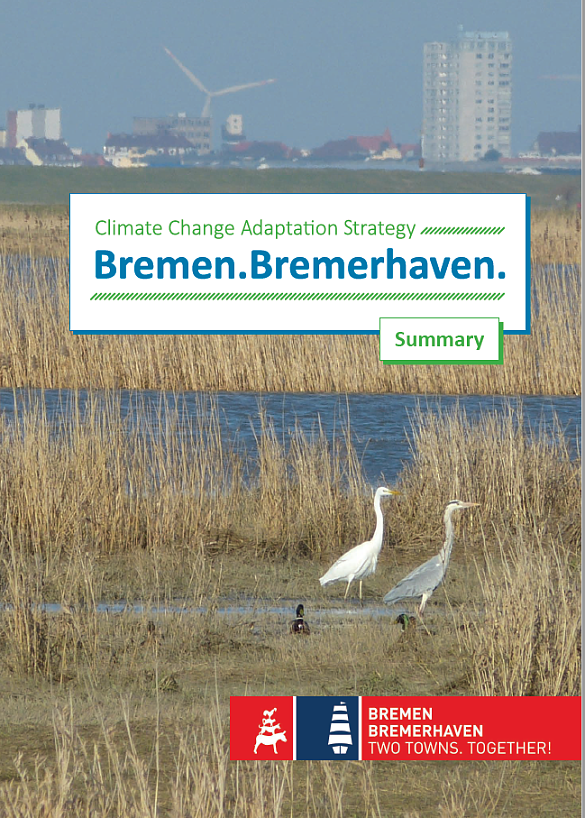
Adapting to the impacts of climate change is a long-term challenge for society as a whole. The Climate Change Adaptation Strategy for Bremen and Bremerhaven (2018) (pdf, 23.9 MB) is aimed primarily at public-authority stakeholders. The focus is on what the members of the political and administrative sector can do to improve the resilience of the state and municipalities in the face of climate change and to enhance their adaptation capacities.
Content
The strategy has identified 28 key measures out of a large number of potential measures, to adapt to climate change. These are regarded as being particularly important for the implementation of the climate change adaptation strategy and should be implemented with a high priority. They also include measures that are already underway and are to be continued.
The 28 key measures center around the following sectors:
In developing the strategy, it was possible to draw on various project results, experiences and approaches at the local, regional and municipal level. The knowledge acquired over the course of these projects forms the basis of the strategy.
The strategy's development was funded as a joint municipal project as part of the Federal Government’s National Climate Initiative (NKI). The Senator for Climate, the Environment, Urban Development and Mobility assumed the leadership role in strategy development and subsequent implementation, working in close cooperation with the Bremerhaven Environmental Protection Authority (Climate City Office). A team of experts, comprising MUST Städtebau (Amsterdam/ Cologne), BPW baumgart+partner (Bremen), GEONET Umweltconsulting (Hanover) and Dr. Pecher AG (Erkrath), was providing technical and organisational support.
The strategy process was also supported by the Deutscher Wetterdienst (DWD) in the context of an administrative arrangement with the State of Bremen, as well as by the Alfred-Wegener-Institut (AWI) and the North German Climate Office at the Helmholtz- Zentrum Geesthacht. In terms of administration, both Bremen and Bremerhaven were provided with technical support by an interdepartmental project group.
Finally, building on the experiences of other municipalities and research projects, a process of extensive stakeholder involvement was undertaken as part of strategy development.